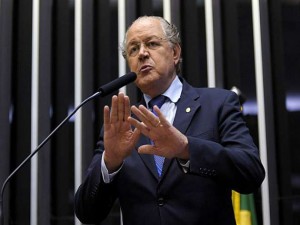Experts say unemployment tends to increase until 2017, playing more informal in the market
Luciléia de Oliveira Rodrigues, 47, and her daughter Gláucia Rodrigues, 25, saw the opportunity for income on the street. “My other daughter started making pot cake to sell at college, and I thought: if it is working there, it will also work on the street”, says Luciléia. And it's giving. They sell about 80 units per day, at R $ 5. They leave around noon and return at 18 pm. They stay until 1 am making cakes. They had a beauty salon, but were forced to close their doors this year. “Customers were losing their jobs, and it didn't work anymore. We even try to look for a job, but they don't even wait for us to get right into the service stations and they already say they don't have a place, ”says Luciléia. According to economists, this lack of vacancies still lasts at least until the middle of next year and, consequently, informality will continue to grow.
According to the economist at Ibre / Fundação Getúlio Vargas (FVG) Fernando de Holanda Barbosa Filho, informality is more likely to drop significantly only in 2018. “In 2017, it is possible that it will stop increasing. Now, for this, it is necessary for the government to work on the tax issue ', says the economist.
He explains that the reflexes of the reduction in economic activity take a while to be felt in the job market: “The same logic applies when economic activity starts to grow again. Employment does not grow at the same rate. After all, the entrepreneur waits a while to find out if business growth is consistent. ”
“This year is already lost. GDP is expected to fall between 3% and 3,5%. The improvement should only come in the middle of 2017, because first the entrepreneur has to be sure that there will be demand; until then, current employees will work more overtime ”, analyzes Virene Matesco, professor of MBA in Economics at the Business School Institute (IBS / FGV).
Until then, the number of people doing what they can also tends to grow. “In a crisis, informality tends to increase exponentially, as people need to eat. And if you have no income or someone from the family to help you, you have to leave to look for an alternative, and creativity emerges. I have seen people selling everything and moving the shared economy through exchanges ”, he says.
Gláucia says that, after being discouraged from looking for a job with a formal license, going out to the street to sell cake was the best idea. She attached WhatsApp to informal work. "Many customers already place orders, and we take them there," he says.(With Juliana Gontijo)
Glossary
Underground economy. According to the president of Etco, Edson Vismona, it is the same as informality, that is, all goods and services produced without being declared and, therefore, without generating taxes
By: Queila Ariadne
Newspaper O Tempo (BH)
16/10/2016





